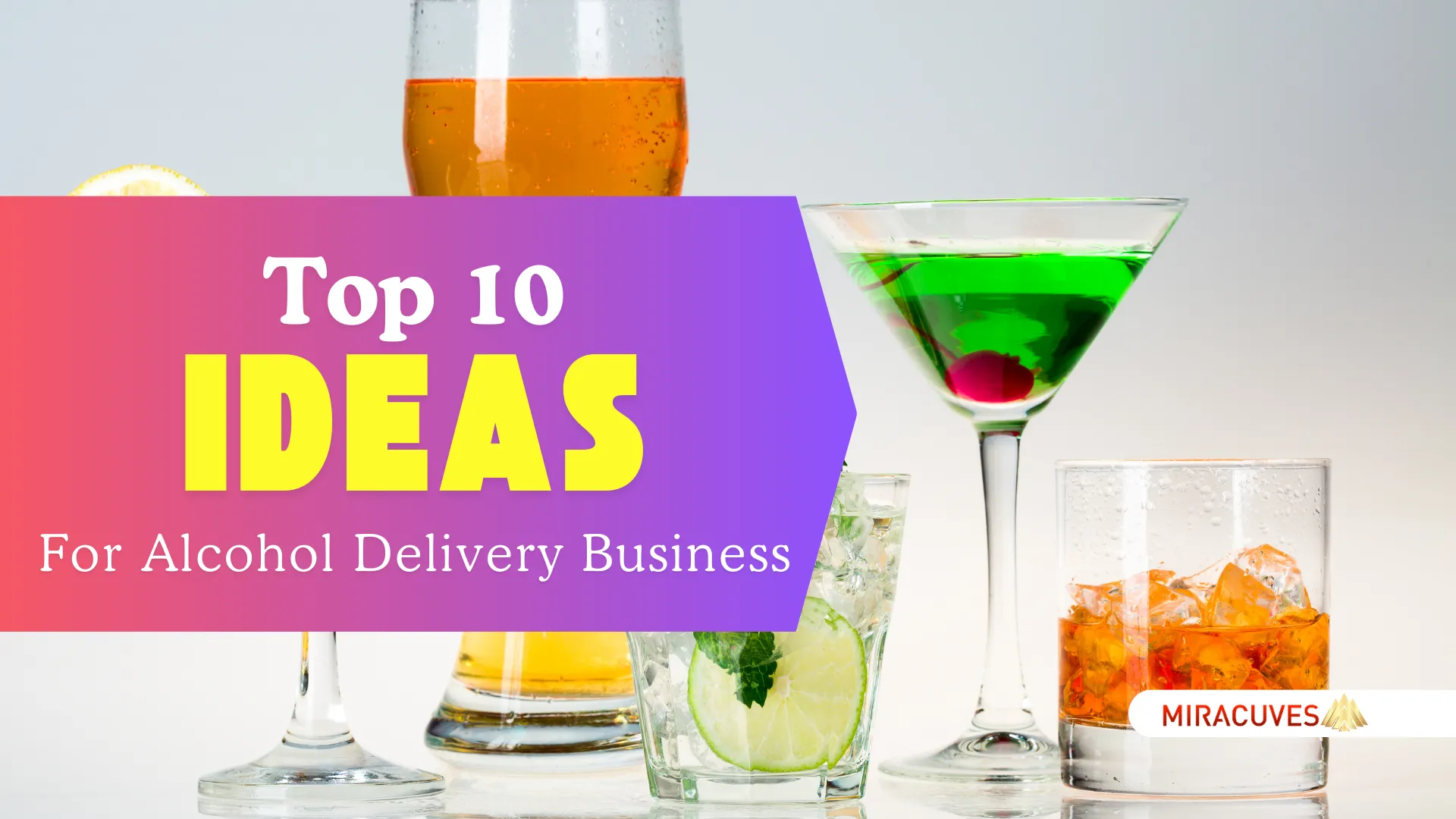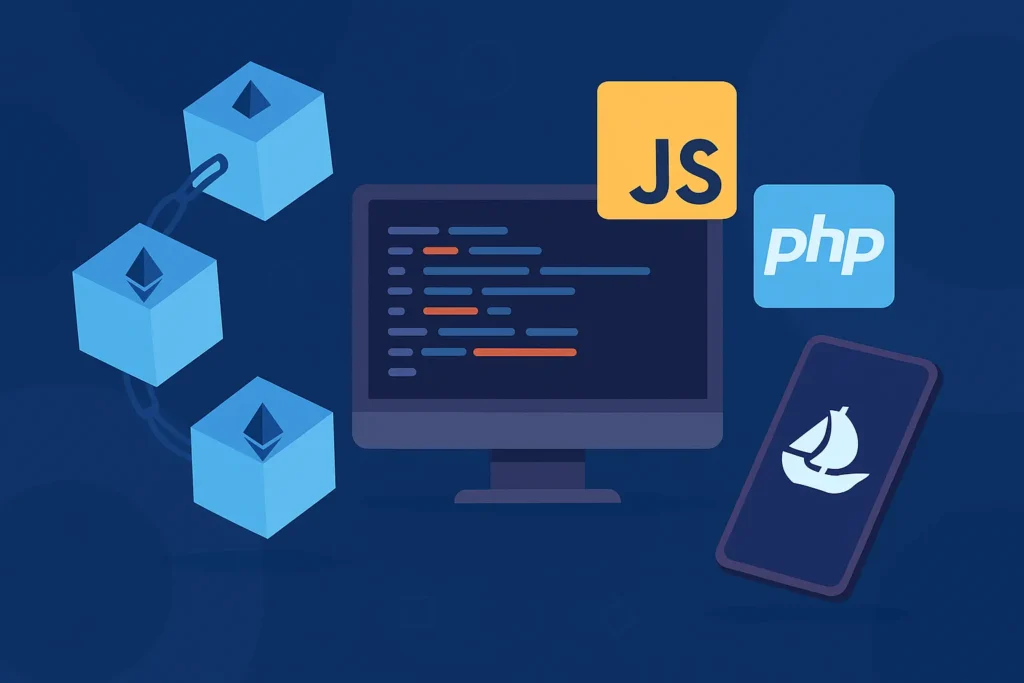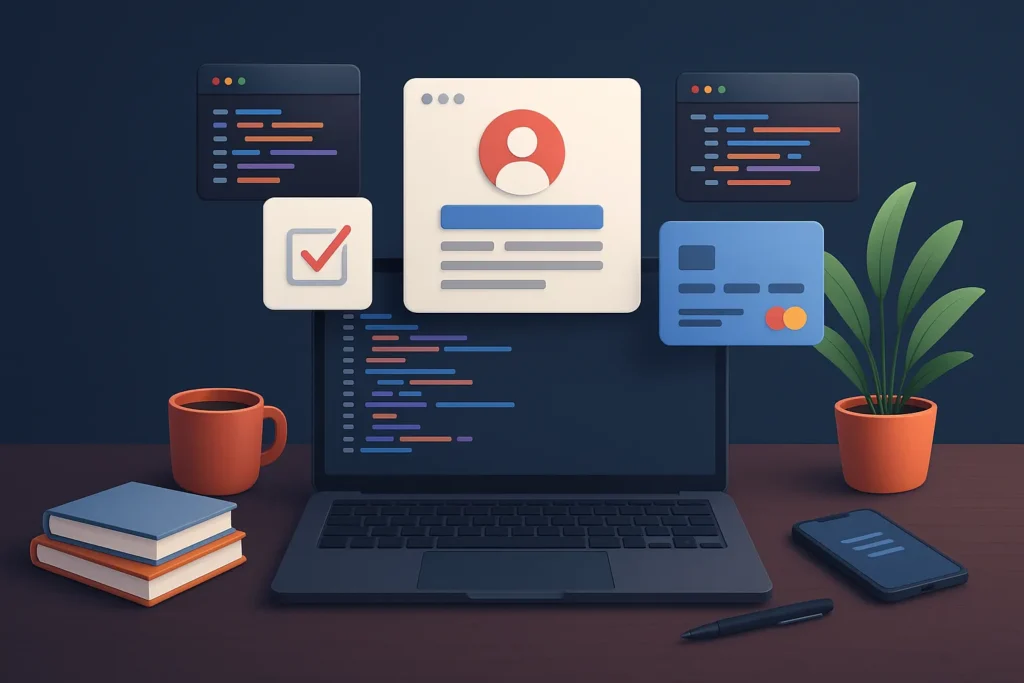The alcohol delivery industry is booming, driven by changing consumer preferences and the convenience of on-demand services. As people increasingly value the ability to order their favorite beverages from the comfort of their homes, the market for alcohol delivery is projected to grow significantly. By 2025, e-commerce in the alcohol sector is expected to reach $42 billion, showcasing the immense potential for startups in this space.
Starting an alcohol delivery business not only taps into a lucrative market but also offers flexibility and scalability. Entrepreneurs can cater to various niches, such as local craft breweries, premium spirits, or even non-alcoholic options, to attract diverse customer segments. Additionally, advancements in technology allow for efficient inventory management and customer engagement, making it easier than ever to launch and operate. Using a prebuilt app like a Vivino clone can help streamline the process, offering features like product discovery, customer reviews, and seamless ordering to enhance user experience and drive sales.
This article will explore the top 10 innovative ideas for alcohol delivery startups, providing insights on market trends, operational strategies, and real-world examples to help aspiring entrepreneurs navigate this dynamic landscape.
Why Choose Alcohol Delivery Business?
The alcohol delivery business offers a unique opportunity to tap into a lucrative market fueled by changing consumer habits. As more people embrace the convenience of ordering their favorite beverages online, the appeal of alcohol delivery services continues to grow. With busy lifestyles and a focus on convenience, many consumers prefer the ease of having drinks delivered to their doorstep rather than making a trip to the store.
Additionally, the alcohol delivery market caters to a diverse audience. From college students celebrating a special occasion to professionals hosting parties at home, there are various segments ready to be served. This versatility allows entrepreneurs to tailor their offerings based on customer preferences, whether it’s local craft beers, premium wines, or artisanal spirits.
The rapid expansion of technology in e-commerce further supports the viability of this business model. Companies can now leverage mobile apps and user-friendly websites to streamline ordering and enhance customer experience. Many successful startups are using data analytics to understand consumer behavior and refine their marketing strategies, ensuring they stay competitive in a crowded marketplace.
The alcohol delivery market continues to grow rapidly, driven by consumer demand for convenience and the shift toward online shopping. With increasing numbers of consumers preferring home delivery over in-store purchases, businesses in this space have immense potential to thrive. Entrepreneurs entering this sector can capitalize on evolving consumer habits to build profitable and sustainable ventures.
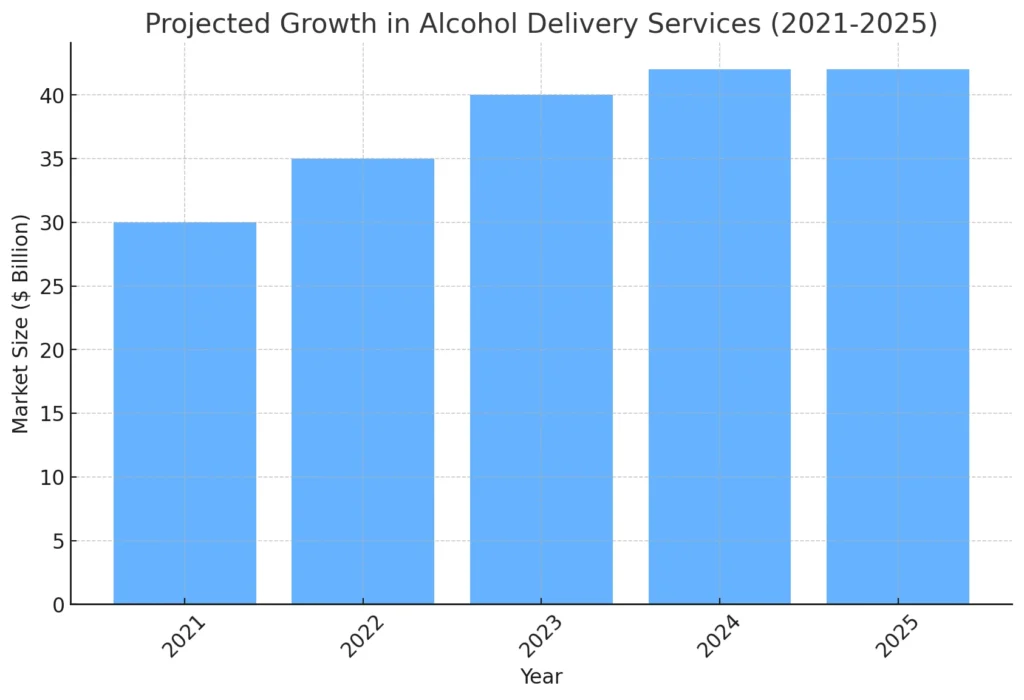
Current Trends and Future Opportunities in Alcohol Delivery
The alcohol delivery industry is evolving rapidly, driven by shifting consumer behavior and technological advancements. One significant trend is the rise of premiumization, where customers seek higher-quality alcoholic products such as artisanal spirits, craft beers, and boutique wines. Businesses offering premium options are capturing a growing audience that values unique, top-tier experiences over standard brands.
Another major trend is the integration of technology and data analytics. Alcohol delivery platforms now use data to personalize customer experiences, recommend products based on previous purchases, and offer promotions tailored to individual preferences. This use of data not only boosts customer satisfaction but also increases sales through targeted marketing strategies.
Sustainability is also becoming an essential part of alcohol delivery services. Companies adopting eco-friendly practices, such as recyclable packaging and carbon-neutral delivery, are appealing to environmentally conscious consumers. Businesses that emphasize sustainability have an edge as customers increasingly prefer brands that align with their values.
No-alcohol and low-alcohol alternatives are another growing segment, as more consumers embrace wellness trends. Startups offering non-alcoholic beers, wines, and mood-enhancing drinks are expanding their customer base by catering to those seeking healthier options without compromising on taste or social experience.
A rising trend is the growing popularity of non-alcoholic beverages. These alternatives are becoming popular among wellness-focused consumers looking for enjoyable, alcohol-free social experiences. Offering innovative non-alcoholic options alongside traditional products can help businesses reach new customer segments and stay competitive in the evolving market landscape.
Read More “The Best Grocery Delivery Services : Top Picks for Convenience“
| Trend / Innovation | Impact on the Market | Opportunity for Startups |
|---|---|---|
| Premiumization | Increases demand for high-quality products | Offer exclusive and luxury alcohol selections |
| Data-Driven Personalization | Boosts customer satisfaction and sales | Implement AI-driven recommendations |
| Eco-Friendly Practices | Appeals to environmentally conscious customers | Use sustainable packaging and delivery methods |
| No/Low Alcohol Alternatives | Expands market to health-conscious consumers | Launch non-alcoholic or low-alcohol product lines |
| Subscription-Based Models | Builds customer loyalty and consistent revenue | Create curated monthly delivery services |
Top 10 Ideas for Alcohol Delivery Business Startups
| Business Idea | Startup Cost Range | Target Market | Profit Potential |
|---|---|---|---|
| On-Demand Alcohol Delivery | Medium | Urban consumers | High |
| Subscription-Based Delivery | Medium to High | Enthusiasts and collectors | Very High |
| Craft Beer Delivery | Low to Medium | Local consumers | Moderate to High |
| Luxury Alcohol Delivery | High | Affluent customers | High |
| Non-Alcoholic Beverage Delivery | Medium | Health-conscious consumers | High |
| Event-Based Alcohol Delivery | Medium to High | Event planners | Very High |
| Alcohol and Snack Pairing Delivery | Medium | Party hosts and connoisseurs | High |
| Mobile Alcohol Delivery App | High | Mobile-first consumers | Very High |
| Sustainable Alcohol Delivery | Medium to High | Eco-conscious customers | Moderate to High |
| Personalized Gift Alcohol Delivery | Medium | Gift buyers | High |
1. On-Demand Alcohol Delivery Service
Offer customers the convenience of fast delivery, ensuring orders arrive within an hour. Speed and variety will attract busy consumers looking for quick solutions for parties or gatherings.
- Target Market: Urban areas with busy professionals and party-goers
- Estimated Costs: Medium (Licensing, logistics, and marketing)
2. Subscription-Based Alcohol Delivery
Provide curated monthly boxes of premium wines, spirits, or craft beers. This model ensures consistent revenue and builds customer loyalty.
- Target Market: Enthusiasts and collectors
- Estimated Costs: Medium to High (Sourcing and subscription management)
3. Craft Beer and Local Brewery Delivery
Partner with local breweries to offer exclusive craft beer deliveries. Customers value unique, regional options not available in regular stores.
- Target Market: Beer lovers and local consumers
- Estimated Costs: Low to Medium (Partnerships and delivery setup)
4. Luxury Alcohol Delivery
Offer premium spirits and wines targeted at high-end consumers. Enhance the experience with bespoke packaging and personalized service.
- Target Market: Affluent customers and corporate events
- Estimated Costs: High (Inventory and premium services)
5. Non-Alcoholic and Low-Alcohol Beverage Delivery
Cater to health-conscious consumers by delivering non-alcoholic wines, beers, and cocktails. This trend is growing as wellness lifestyles gain popularity.
- Target Market: Millennials, Gen Z, and wellness-focused consumers
- Estimated Costs: Medium (Product sourcing and branding)
6. Event-Based Alcohol Delivery Service
Provide delivery services for parties, weddings, and corporate events with options for bulk orders. Event planning partnerships can expand your reach.
- Target Market: Event planners and large gatherings
- Estimated Costs: Medium to High (Event logistics and inventory)
7. Alcohol and Snack Pairing Delivery
Enhance the customer experience by offering drink-and-snack pairings. Deliver items like cheese, charcuterie, or chocolates with specific wines or spirits.
- Target Market: Party hosts and connoisseurs
- Estimated Costs: Medium (Inventory and packaging)
8. Mobile Alcohol Delivery App
Develop an easy-to-use app that allows customers to order alcohol on the go. Integrate tracking and personalized recommendations to boost engagement.
- Target Market: Mobile-first consumers
- Estimated Costs: High (App development and maintenance)
9. Sustainable Alcohol Delivery Service
Focus on eco-friendly practices, offering sustainable packaging and carbon-neutral deliveries. Appeal to environmentally conscious customers.
- Target Market: Eco-conscious consumers
- Estimated Costs: Medium to High (Sustainable solutions)
10. Personalized Gift Alcohol Delivery
Provide a gifting service where customers can send personalized alcohol hampers for special occasions. Offer customization options for added appeal.
- Target Market: Gift buyers and event planners
- Estimated Costs: Medium (Packaging and customization)
Real-World Examples
The alcohol delivery sector has witnessed remarkable success stories, highlighting how startups can capitalize on this growing industry. Many businesses have leveraged technology, consumer insights, and unique selling propositions to stand out in a competitive market.
One notable example is the rise of on-demand alcohol delivery services. Companies that offer fast, one-hour deliveries have grown exponentially in urban areas where customers demand instant convenience. These services have successfully partnered with local stores, allowing them to provide a wide selection without maintaining large inventories.
Another inspiring story comes from startups focusing on subscription-based alcohol delivery. These businesses have captured a loyal customer base by offering monthly curated boxes of premium wines, craft beers, and unique spirits. The element of surprise and exclusivity keeps customers engaged and ensures recurring revenue.
Non-alcoholic beverage delivery startups are also making waves by tapping into the wellness trend. By offering alcohol-free alternatives, such as mocktails or CBD-infused beverages, these companies have attracted health-conscious consumers looking for social drinking options without compromising their lifestyle goals.
The success of these businesses illustrates the power of innovation, customer-focused strategies, and the ability to adapt to emerging trends. Entrepreneurs entering this space can learn from these examples to build strong brands that meet evolving consumer expectations.
Read More “Top 10 Ideas for Profitable Logistics and Courier Services Business Startups“
| Business Type | Success Rate | Common Challenges |
|---|---|---|
| On-Demand Alcohol Delivery | 80% | Logistics management and competition |
| Subscription-Based Alcohol Delivery | 85% | Customer retention and product variety |
| Craft Beer and Local Brewery Delivery | 70% | Establishing partnerships with suppliers |
| Non-Alcoholic Beverage Delivery | 75% | Educating consumers about new product types |
| Event-Based Alcohol Delivery | 65% | Coordinating bulk orders and event logistics |
Mistakes to Avoid When Starting an Alcohol Delivery Business
Starting an alcohol delivery business can be exciting, but it comes with challenges that must be carefully navigated. Many startups stumble by overlooking critical areas such as legal compliance, marketing, and logistics. Avoiding these common pitfalls will improve your chances of building a successful and sustainable business.
1. Ignoring Legal Requirements
One of the biggest mistakes is failing to comply with regulations. Alcohol delivery businesses need specific licenses, and strict rules govern age verification and delivery timings. Non-compliance can lead to fines or even business shutdowns. Startups must prioritize obtaining all necessary licenses and implementing robust ID checks to avoid legal troubles.
2. Poor Inventory Management
Managing inventory efficiently is crucial to meet customer expectations. Startups often miscalculate demand, leading to stock shortages or overstocking. Both can hurt profitability—running out of popular products frustrates customers, while excess inventory ties up cash. Use inventory tracking systems to maintain the right balance and avoid these issues.
3. Inadequate Marketing Strategies
Assuming that customers will come without marketing is a common mistake. Startups need strong marketing strategies to build brand awareness and attract customers. Utilize social media, email marketing, and partnerships with local stores to generate buzz and acquire loyal customers.
4. Ignoring Customer Experience
In today’s competitive market, customer satisfaction is key. Delays in delivery or poor packaging can result in negative reviews and lost business. Companies need to ensure smooth operations with real-time delivery tracking and well-packaged products to enhance the customer experience.
5. Underestimating Logistics Challenges
Efficient logistics are the backbone of any alcohol delivery business. Many startups struggle to manage delivery routes and schedules, resulting in delays. Implementing smart routing software and hiring reliable drivers are essential steps to ensure timely deliveries and satisfied customers.
| Common Mistake | Impact | Solution |
|---|---|---|
| Ignoring Legal Requirements | Fines or shutdown | Secure licenses and enforce ID verification |
| Poor Inventory Management | Stockouts or overstocking | Use inventory tracking software |
| Inadequate Marketing Strategies | Low brand awareness | Implement digital marketing campaigns |
| Ignoring Customer Experience | Negative reviews and lost customers | Ensure timely delivery and good packaging |
| Underestimating Logistics Challenges | Delivery delays | Optimize delivery routes with smart tools |
Why Trust Miracuves Solutions for Your Next Project?
Launching an alcohol delivery business requires more than just a great idea—it needs the right technology and expertise to succeed. This is where Miracuves Solutions can make a difference. By providing tailored solutions, advanced technology, and exceptional support, Miracuves ensures that startups are equipped to meet customer expectations and thrive in a competitive market.
1. Expertise in Developing On-Demand Delivery Platforms
Miracuves Solutions specializes in creating custom delivery platforms that cater to the unique needs of alcohol delivery businesses. From mobile apps to web-based solutions, their platforms are user-friendly, reliable, and built to scale with your business as it grows.
2. Faster Time to Market
Time is critical in a fast-moving industry. Miracuves Solutions ensures that your platform goes live 30 times faster than the global average, giving you a competitive edge. Whether it’s launching a mobile app or integrating real-time tracking, they work swiftly without compromising quality.
3. Cost-Effective Solutions
Miracuves provides top-tier technology at just 10% of the global average cost, making it accessible for startups of all sizes. Their solutions enable entrepreneurs to invest more in growth and marketing while minimizing initial development costs.
4. Comprehensive Support and Customization
Miracuves Solutions offers end-to-end support, from initial consultation to post-launch maintenance. Their team works closely with you to understand your goals and customize the platform to align with your business strategy. With continuous updates and proactive support, your platform will stay ahead of market trends and evolving customer demands.
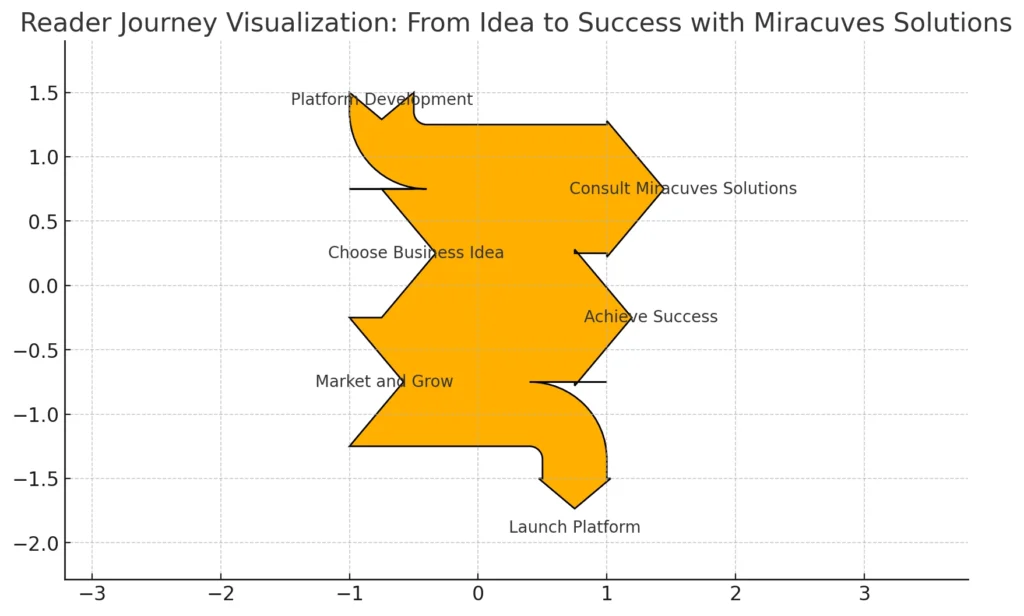
Conclusion
The alcohol delivery business presents exciting opportunities for entrepreneurs willing to tap into evolving market trends. With consumer habits shifting towards convenience, premiumization, and sustainability, the potential for growth in this industry is immense. Whether focusing on on-demand delivery, subscription-based models, or non-alcoholic alternatives, the key to success lies in innovation and customer satisfaction.
Entrepreneurs who leverage technology, streamline logistics, and adapt to market changes will position their businesses for long-term success. The future of alcohol delivery belongs to companies that can meet customer expectations while exploring new trends and expanding their offerings.
Also Read “How to Develop a Food & Grocery Delivery App Like Glovo: Costs, Features, and Timeframe“
FAQs
How much does it cost to start an alcohol delivery business?
Startup costs vary based on location, licensing, and business model. On average, it can range from $25,000 to $50,000, covering licensing, inventory, and logistics setup.
What are the legal requirements for alcohol delivery?
You need appropriate licenses, compliance with local laws, and robust ID verification processes to ensure age restrictions are followed during deliveries.
How can I attract customers to my alcohol delivery service?
Use a mix of digital marketing, partnerships with local stores, and referral programs. Offering discounts or free delivery for first-time customers can also boost early adoption.
What technologies are essential for running an alcohol delivery business?
A mobile-friendly platform, real-time tracking tools, and automated inventory management systems are key for smooth operations and customer satisfaction.
How can I stand out from competitors?
Focus on niche offerings like premium beverages, curated subscription boxes, or eco-friendly delivery options. Personalized service and consistent customer engagement will also set you apart.
Elevate your alcohol delivery experience with Miracuves – designed for easy access, reliable delivery, and quick transactions:
- Nestor Liquor Like App – A premium liquor delivery app offering a curated selection of top-quality spirits, fast delivery, and customer-friendly options.
- Flaviar Like App – A refined app for whiskey and spirits enthusiasts, providing exclusive bottles, tasting experiences, and seamless delivery.
- Vivino Like App – A wine delivery app that provides a wide variety of fine wines, expert recommendations, and smooth order tracking.
- Weedmaps Like App – A trusted app for the legal delivery of cannabis products, offering fast, reliable delivery and a wide selection of quality strains.



